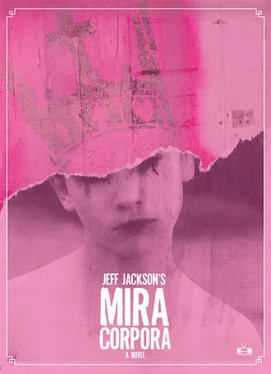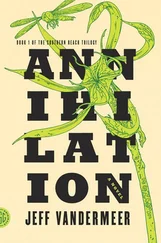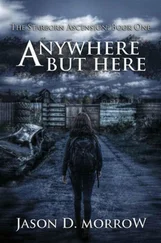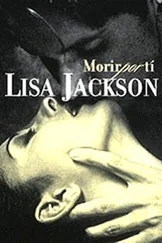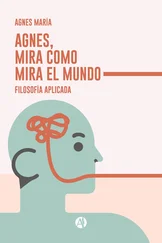Jeff Jackson - Mira Corpora
Здесь есть возможность читать онлайн «Jeff Jackson - Mira Corpora» — ознакомительный отрывок электронной книги совершенно бесплатно, а после прочтения отрывка купить полную версию. В некоторых случаях можно слушать аудио, скачать через торрент в формате fb2 и присутствует краткое содержание. Год выпуска: 2013, ISBN: 2013, Издательство: Two Dollar Radio, Жанр: Современная проза, на английском языке. Описание произведения, (предисловие) а так же отзывы посетителей доступны на портале библиотеки ЛибКат.
- Название:Mira Corpora
- Автор:
- Издательство:Two Dollar Radio
- Жанр:
- Год:2013
- ISBN:9781937512149
- Рейтинг книги:5 / 5. Голосов: 1
-
Избранное:Добавить в избранное
- Отзывы:
-
Ваша оценка:
- 100
- 1
- 2
- 3
- 4
- 5
Mira Corpora: краткое содержание, описание и аннотация
Предлагаем к чтению аннотацию, описание, краткое содержание или предисловие (зависит от того, что написал сам автор книги «Mira Corpora»). Если вы не нашли необходимую информацию о книге — напишите в комментариях, мы постараемся отыскать её.
Mira Corpora — читать онлайн ознакомительный отрывок
Ниже представлен текст книги, разбитый по страницам. Система сохранения места последней прочитанной страницы, позволяет с удобством читать онлайн бесплатно книгу «Mira Corpora», без необходимости каждый раз заново искать на чём Вы остановились. Поставьте закладку, и сможете в любой момент перейти на страницу, на которой закончили чтение.
Интервал:
Закладка:
The cause of this trip is a letter. I had started to create a new life for myself when it tracked me down via registered mail. It arrived in a crimson envelope addressed in oversized letters to Jeff Jackson. Too intriguing not to open. On official legal stationery, a lawyer informed me that my mother was dead. He offered his sincere condolences concerning her sad and untimely passing. The letter stated I was her sole heir and included a bus ticket so I could settle the estate in person. The lawyer emphasized the estate was significant. After several days convincing myself I was more interested in the money than curious about my mother, I boarded this Greyhound heading south.
When I step off the bus, the lawyer is there to meet me at the station. He insists on being referred to as the “Estate Disbursement Attorney,” a term that so perfectly encapsulates both his physical and spiritual dimensions that it might as well be his given name. He drives us straight to the house where my mother had been staying. As he navigates a series of bumpy back roads, I’m relieved not to recognize anything. But the rows of modest houses and neat lawns are soon replaced by stands of pines, rangy shrubs, empty lots. The sky is steadily darkened by green clouds of leaves. We’re heading into the woods. As we travel under the crosshatched canopy of trees, there’s a shudder of terrible recognition. When we turn off the asphalt lane and pull into the winding dirt driveway, there’s no longer any doubt: This is the house.
It’s a modest cottage with quaint wooden shutters. The place has been spruced up since we lived here. The flowerboxes burst with geraniums. A pile of stones have been used to start blocking out a garden. Someone has applied a fresh coat of yellow paint to the walls and smartly etched the trim. But none of that camouflages the fact this is the first house my mother and I shared together. My first so-called home after an endless series of orphanages and foster nightmares. Our first attempt at being a so-called family. We lasted here about nine months, I think. A small eternity by the calendar of our relationship.
The Estate Disbursement Attorney unlocks the front door to let us inside. The sharp chemical smell is new, but the layout of the rooms and even the severe angle of the afternoon light in certain rooms are exactly how I remember them. These were the sites of our first tentative encounters and occasionally successful attempts to bond with one another. When I was sick, she stayed up one night holding compresses against my fluttering chest. She taught me to read, patiently sounding out syllables and letter combinations. I recited the words back to her, imitating her own halting pauses.
But this isn’t a lost Eden or anything. It was also the place where my mother first exhibited her savage temper. At any moment, the house could transform itself into a showcase for her binge drinking and sudden blackouts. She devised scarring punishments with oven burners, space heaters, and curling irons. But it was painful when she abandoned me, just the same.
As I survey the sparsely furnished rooms, unanswered questions about the house begin to nag at me. My mother had always been nomadic, ceaselessly shifting from one part of the country to another, rarely staying anywhere long enough for dust to collect behind the refrigerator. So I can’t figure why she bothered to return here. Perhaps it was a simple decision of convenience, something close to coincidence.
There’s a strained silence in the room. The Estate Disbursement Attorney clears his throat. In a hesitant voice that sounds like crumpling receipts, he says: “If you’re curious, I’d be happy to tell you how your mother passed on.”
His statement is so far outside my realm of caring that it takes me a moment to realize he’s expecting a response. “Of course,” I say. “How did she die?”
“Cancer.”
The significance of the word is slow to register. This means she knew the end was coming. Her return to the house must have been purposeful. A gesture of sorts.
“Do you know why she rented this place?” I ask.
“Rent?” The Estate Disbursement Attorney shakes his head vigorously. “She bought the house. There’s not even a mortgage. She owns it outright.”
This news leaves me dumbstruck. It’s difficult to process the fact that she would own any home. That she chose to buy this particular house is beyond the pale. Is it possible she nurtured a sentimental attachment to the time we spent here together?
The Estate Disbursement Attorney leads me into the kitchen. Atop a cheap formica table, my mother’s ashes sit in a bright silver urn. After unpacking a stack of collated papers from his briefcase, the Attorney shares some preliminary details about my mother’s estate. “There was no funeral,” he says. “Instead, she’s presented her heir with a formal series of last wishes.” He picks up the first page of her instructions, scrupulously wipes his glasses on his tie, and begins to read.
First: She wants me to dispose of her ashes in a ceremonial fashion. I’m to follow the local river up into the mountains and sprinkle her remains at its source during sunset.
Second: She wants me to read a specific eulogy while I scatter the ashes. A notebook is provided that contains a lengthy existential reflection. She claims this ritual will be a healing ceremony to provide closure with the past. To break the circle, or start a new one, or some other predictable metaphor.
Third: She wants me to have this house. The deed to the property will be turned over to me, provided I carry out her last wishes and sign a legally binding document stating I’ll make this my sole residence. If I agree, she expects me to move in immediately. There’s not even the smallest hint about the place’s possible significance to either of us.
“You either live here or you lose it,” the Attorney emphasizes. “If you don’t sign the form, the house goes to another relative.”
My mother’s will concludes with several brief lines about love. At first, I assume these are included out of deference to the conventional emotions that mothers are reported to feel for their offspring. But the awkward and halting phrases have a disturbingly genuine ring. They aren’t much, but they’re more than she uttered while she was alive.
The Estate Disbursement Attorney produces a copy of the residency document that I have to sign if I want to keep the house. I push it aside. It’s too overwhelming to contemplate. “You’ve got a week to decide,” he says. “I’ll leave the form with you.” Before he departs, the Attorney also hands over an official copy of the will, the notebook with the eulogy, and the silver urn full of ashes.
Once I’m alone, I wander through the house in a daze. I try to examine the place with an objective eye. Maybe it isn’t so bad. The construction appears sturdy, the rooms are spacious, the southern windows offer scenic views of the surrounding woods. Even the weathered pieces of leftover furniture — the queen-size bed, the leather recliner, the expansive sectional sofa — seem comfortable. After all these years, it would be nice to have a place to call my own.
The walls are bare and the rooms scrubbed of personality, but a few of my mother’s possessions have been salvaged. As soon as I pry open the cupboards and closets, they start to spill out. In the master bedroom, piles of neatly folded sweaters and faded dresses. In the foyer, a stash of yellowed paperback romances. Best of all, under the bathroom sink, rows of oversized plastic jugs filled with gin and vodka. An unsurprising stockpile.
I investigate the guest bedroom. In the far corner of the closet, a series of cardboard boxes have been stacked. I’m startled to find them brimming with bits of my childhood. I place each piece on the floor, like an archeologist separating the various strata and undertaking a careful inventory. There are a few scraps of clothes. Ancient T-shirts, mostly. A series of drawings hail from different eras. Many are pure splotches of exploded color. A few resemble splayed and dissected bodies.
Читать дальшеИнтервал:
Закладка:
Похожие книги на «Mira Corpora»
Представляем Вашему вниманию похожие книги на «Mira Corpora» списком для выбора. Мы отобрали схожую по названию и смыслу литературу в надежде предоставить читателям больше вариантов отыскать новые, интересные, ещё непрочитанные произведения.
Обсуждение, отзывы о книге «Mira Corpora» и просто собственные мнения читателей. Оставьте ваши комментарии, напишите, что Вы думаете о произведении, его смысле или главных героях. Укажите что конкретно понравилось, а что нет, и почему Вы так считаете.
